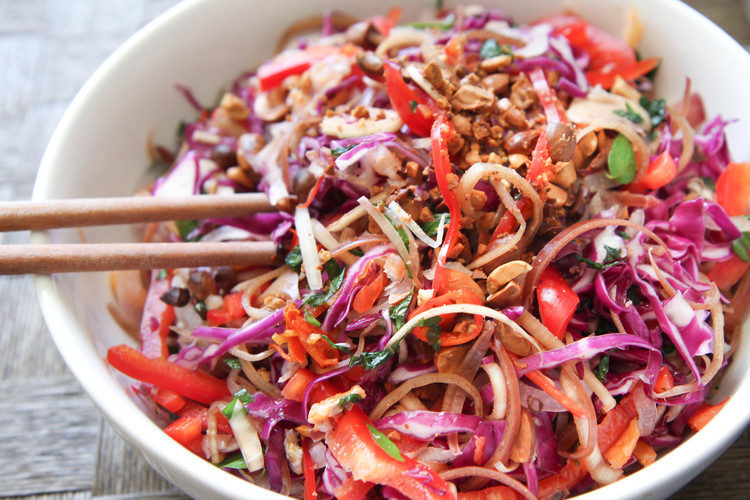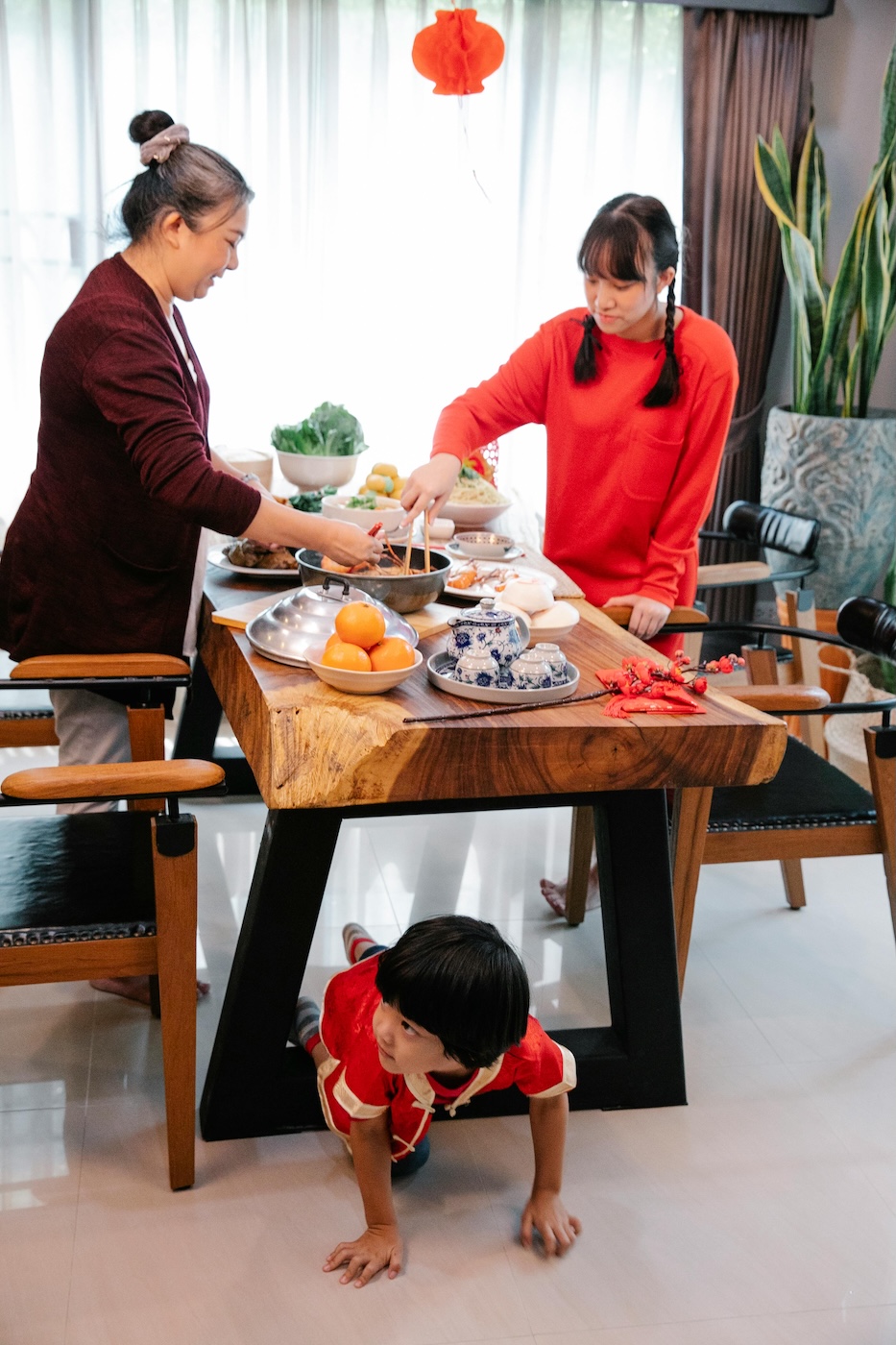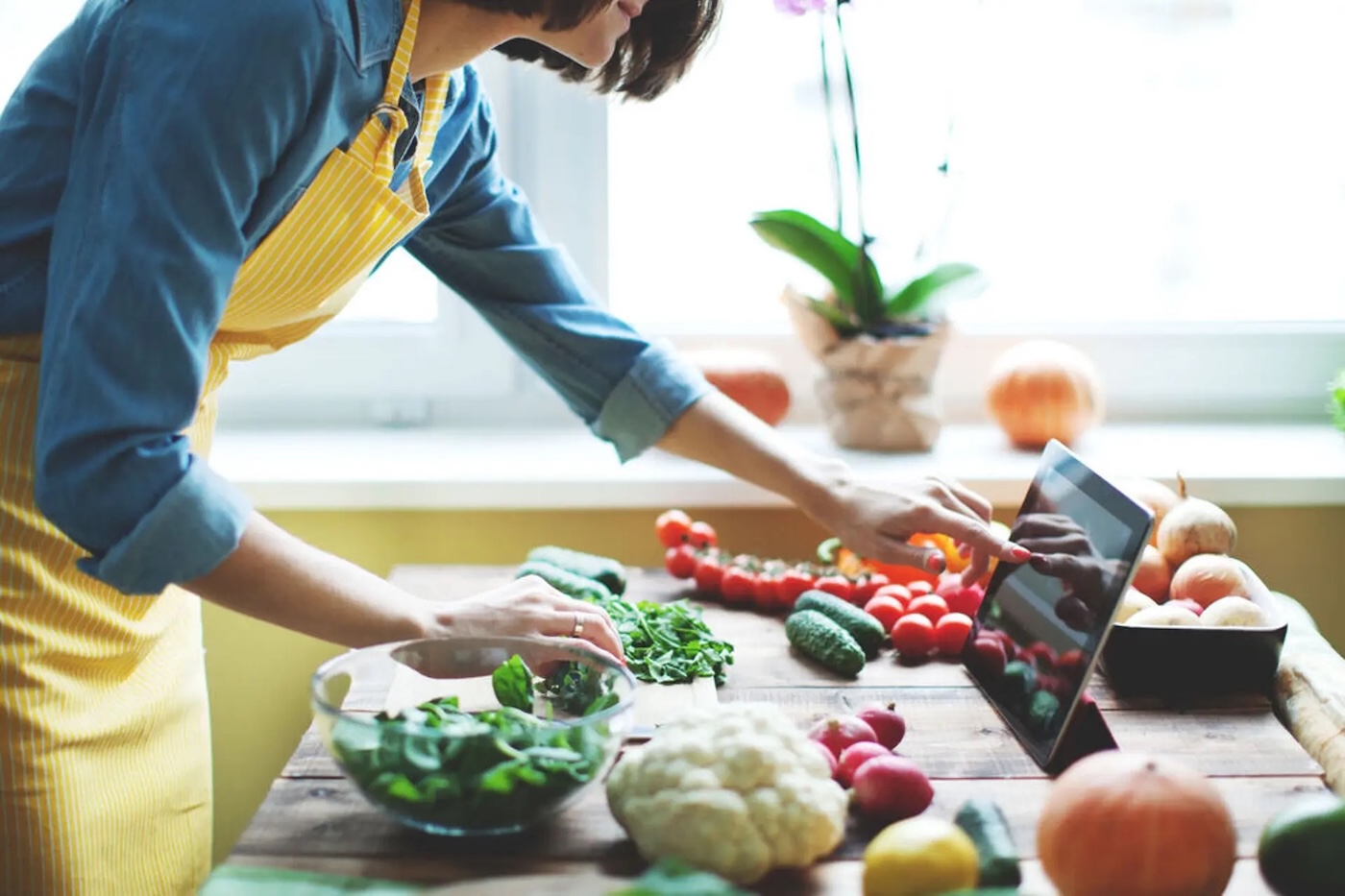Honoring tradition, nourishing compassion
I grew up in a Buddhist family, where meat-free meals were a familiar part of life. They came on the first and fifteenth day of every lunar month, dates believed to hold spiritual significance. We also prepared them for Buddhist holidays and on the anniversaries of our ancestors’ passing.
Beyond honoring tradition, these meals carry a deeper spiritual meaning. Choosing plant-based food is seen as a way to nurture seeds of love and compassion, to live gently, and to refine one’s moral character so the mind can be at peace. It limits the act of taking life, encourages turning away from harmful deeds toward good ones, and reflects the Buddhist path of self-cultivation. For those devoted to spiritual practice, it is also a way to reduce attachment and desire, soften the ego, and return to simplicity and humility in daily living.
Meals That Bring Us Together
And perhaps that’s why those days felt different. Relatives I hadn’t seen in months would arrive, carrying bags of fresh vegetables or trays of homemade dishes. The kitchen would come alive with activity: my mother slicing carrots into delicate flower shapes, soaking shiitake mushrooms until they were soft and fragrant, and stir-frying morning glory with garlic until the air was rich with warmth. By noon, the table would be filled with steamed rice, braised tofu, banana blossom salad, and fragrant vegetable curry.

We weren’t just cooking for ourselves. In our belief, these meals were an offering, a way to invite blessings, protection, and good fortune into the home. Each dish placed on the altar was like a quiet wish sent to the higher powers, asking for health, harmony, or simply a smoother path ahead. Some prayed for a good harvest, others for their children’s success, and some just for peace in the family. Even if not everyone voiced their prayers aloud, you could feel the unspoken hopes at the table.

After bowing in respect to our ancestors, we would wait for the incense to burn low before sharing the meal together. Sitting side by side, we talked and laughed over a humble yet abundant table. These moments were about remembering those who were gone, cherishing those still here, and knowing our hopes and blessings were shared.
When Tradition Becomes A Way Of Life
Of course, not every plant-based meal in Vietnam is tied to religion or ritual. Some people choose it simply because it makes them feel lighter, healthier, or more at peace. A friend of mine has followed this way of eating for years, not out of obligation, but out of choice.
She once struggled with chronic fatigue and frequent digestive discomfort. After switching to a plant-based diet and sticking to it, she noticed gradual changes that her energy returned and her sleep became deeper.
“I just feel… lighter,” she told me with a smile. “Not just in my body, but in my mind. I wake up without that heavy feeling I used to have after meals.”

For her, it’s not restrictive at all. In fact, it’s opened up a whole new world of cooking. She’s constantly experimenting with recipes, from crispy mushroom rolls to coconut-braised jackfruit, and sharing them with friends.
Vietnamese plant-based cooking is endlessly creative. Instead of simply removing meat, it transforms familiar ingredients such as soy, tofu, young banana, taro, green beans into flavorful dishes that stand proudly on their own. Whether it’s a street vendor’s warm bowl of noodle soup or a temple feast prepared for hundreds, there’s always a sense of generosity in the way it’s served.
A Tradition That Keeps Growing
What I love most is that this tradition doesn’t fade. In cities and villages alike, you’ll find people who, for one reason or another, choose these meals regularly. Some follow the lunar calendar. Others make it a daily habit. And many more join in during festivals, community gatherings, or even casual family dinners. Anyone can prepare it, anyone can share it. And in every serving, there’s a trace of care for both body and spirit.
For me, these meals will always be more than vegetables on a plate. They are blessings made visible, love made edible, and a reminder that even in a fast-changing Vietnam, some traditions keep growing, one shared table at a time.
